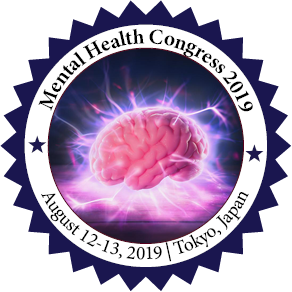
Joseph Rosado
Medical Director Med Diagnostic Inc., DBA Coastal Wellness Centers United States
Title: Medical Cannabis for Autism Spectrum Disorder
Biography
Biography: Joseph Rosado
Abstract
ABSTRACT
OBJECTIVE: A literature review was conducted to evaluate the validity of medical cannabis as an adjunctive treatment in the management of individuals with Autism Spectrum Disorders.
BACKGROUND: Autism spectrum disorder (ASD) is a developmental disability that can cause significant social, communication and behavioral challenges. The learning, thinking, and problem-solving abilities of people with ASD can range from gifted to severely challenged.
Since there is no medical test to diagnose the disorders, the provider must listen to the parent/ caretaker and look at the child’s behavior and development to make a diagnosis. Unfortunately, many children do not receive a final diagnosis until much older.
A deficiency in the endocannabinoid system in the body is considered as the reason for many disorders and recent researchers’ state that it might help in the treatment of autism. The chronic neuroinflammation can be eased with the help of the antioxidants which are present in the cannabis plant.
The theory of CED was based on the concept that many brain disorders are associated with neurotransmitter deficiencies, affecting acetylcholine in Alzheimer's disease, dopamine in Parkinsonian Syndromes, serotonin and norepinephrine in depression, and that a comparable deficiency in endocannabinoid levels might be manifest similarly in certain disorders that display predictable clinical features as sequelae of this deficiency.
DESIGN/METHODS: A literature review was conducted of the National Center for Biotechnology Information, U.S. National Library of Medicine PubMed from 2012-2018 specific to the topic of medical cannabis and autism spectrum disorder.
CONCLUSION: This literature review supports the feasibility of cannabis based medicine as a promising treatment option in children with ASD. Based on the promising results, it is recommended that large, double blind, placebo controlled cross-over trials be launched in jurisdictions where medical cannabis can be studied without limitations from the federal government.

